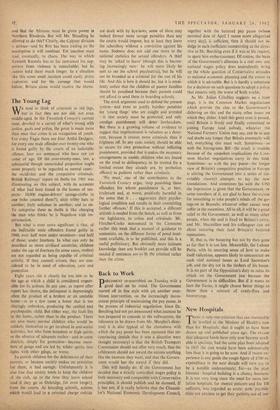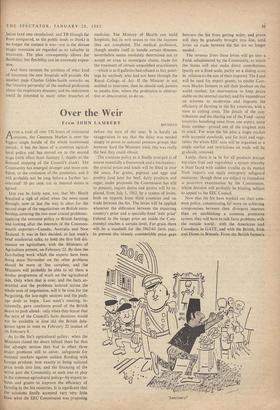New Hospitals
be levelled at the Minister of Health's new Plan for Hospitals; that it ought to have been drawn up and published years ago. The excuse that adequate funds have 'only now become avail- able is specious; had the same plan been adopted - in 1955 the cost would have been substantially less than it is going to be now. And if recent ex- perience is any guide the rough figure of 000 m. expenditure in the next decade will turn out to be a notable underestimate; for—as the plan foresees—hospital building is a chancy business. • It is not very long since the need for more iso- lation hospitals, for mental patients and for TB sufferers, was regarded as acute; now, psychia- trists are anxious to get their patients out of iso- lotion (and into circulation); and TB (though far from conquered, as the public tends to think) is no longer the menace it was—nor is the distant. magic mountain air regarded as so valuable in treatment. The plan cOnsequently allows for flexibility; but flexibility can be extremely expen- sive.
And there remains the problem of what kind of treatment the new hospitals will provide. On another page Charles Gibbs-Smith remarks on the 'massive perversity' of the medical profession about the respiratory diseases; and his indictment could be extended to many other branches of medicine. The Ministry of Health can build hospitals; but its writ ceases to run the moment they are completed. The medical profession, though unable itself to handle certain illnesses, nevertheless seems resolutely determined not to accept or even to investigate claims made for the treatment of certain, unqualified practitioners —which is as if galleries had refused to buy paint- ings by anybody who had not been through the Royal College of. Art. If the Minister is not entitled to intervene, then he should seek powers to enable him, where the profession is obstruc- tive or obscurantist, to do so.







































 Previous page
Previous page